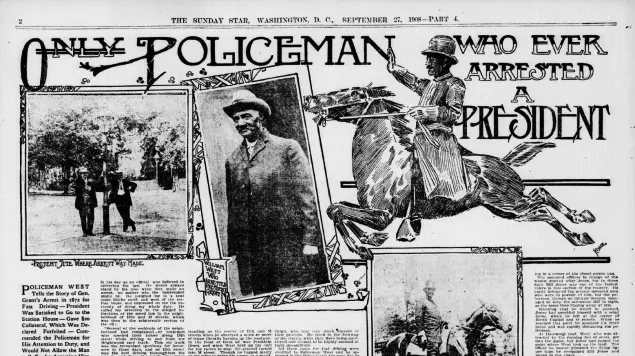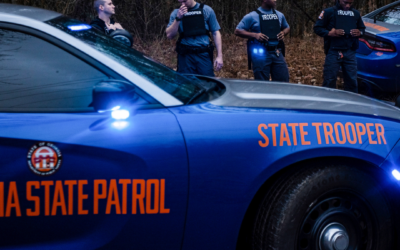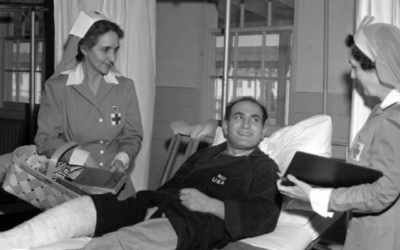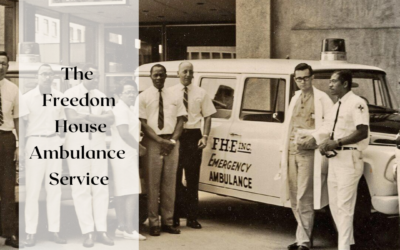Millions of traffic stops are conducted each year all over the country, which makes them the most prevalent way the police have contact with the public. Being in the presence of police can bring someone a mix of emotions. Even President Ulysses S. Grant had mixed emotions when he was pulled over (and arrested!) by the police.
History of Traffic Stops
Traffic stops are not something new. In fact, the concept of the modern traffic stop preceded automobiles as police were enforcing laws against “speeding” in horse-drawn carriages in the late 19th Century.
In an excellent article exploring how cars – and traffic stops – have changed the dynamics of the relationship police have with the public, Josh Keefe tells the story of the first documented traffic stop. Ironically, the man who was arrested for driving his horse carriage too fast on the streets of Washington, D.C. was none other than Ulysses S. Grant, the sitting President of the United States. The arresting officer, William West, a black man, told the story to Washington’s Sunday Star newspaper upon his retirement in 1908.

Mixed Feelings about Traffic Stops
Ever since the introduction of the Model T, which brought about widespread car ownership by the 1920s, police have been enforcing traffic laws intended to make the roads safer. Surely, motorists who got “pulled over” by police 100 years ago experienced a similar flood of emotions that today’s drivers feel when they see the flashing lights in the rear-view mirror.
It is normal to experience mixed feelings about traffic stops. These emotions can include fear, nervousness, confusion, and even humiliation. These feelings can transcend the incidence of traffic stops and attach themselves to the perceptions we have of the police in general.
Interestingly, certain emotional responses are often associated with particular careers. For instance, if you hear someone is a researcher, you may assume they are smart. Yet, if you hear someone is a laborer, you may not believe they are not as smart as the researcher.
Obviously, those emotions will be colored by our own perspectives and life experiences. Therefore, these emotional reactions can manifest themselves differently for each of us when interacting with a police officer during a traffic stop. Some may experience fear, respect, or even concern when being pulled over.
Why Do We Experience These Feelings?
The Pacific Standard explains this is all due to “conditioning from driver’s ed class, where instructors drill our country’s impressionable youngsters about statutes, laws, and financially stiff penalties for their actions.” In other words, we may experience these mixed feelings because we have been taught to respond like this.
In life, we all learn differently how to react in certain situations. For instance, if someone grows up in a household with a law-enforcement officer in the family, they may not harbor feelings of fear for police, but rather feelings of respect for these authority figures. However, others may have an innate fear of police officers resulting from negative encounters they have experienced or heard about.
You may ask yourself, “How can I control my emotions in a traffic stop?” or “What can I do to improve the outcome of a traffic stop?”
How Can I Change These Feelings?
At OPTU, we offer a motor vehicle course entitled, ‘Interacting with Law Enforcement: Motor Vehicle Stops”. This course provides safety, proper etiquette, and provides guidance for interacting with law enforcement during routine motor vehicle stops.
This course will allow drivers to feel more comfortable during such encounters by preparing them for the situation. Drivers who have completed the course will have fewer negative feelings about these interactions because they will know what to do and say during traffic stops.
Start reducing your risk and improving your personal safety on the road and during traffic stops, by checking the “Courses” link to learn more about our new motor vehicle course, “Interacting with Law Enforcement: Motor Vehicle Stops.” This motor vehicle safety course is only $17.50 + tax. Sign up today!








